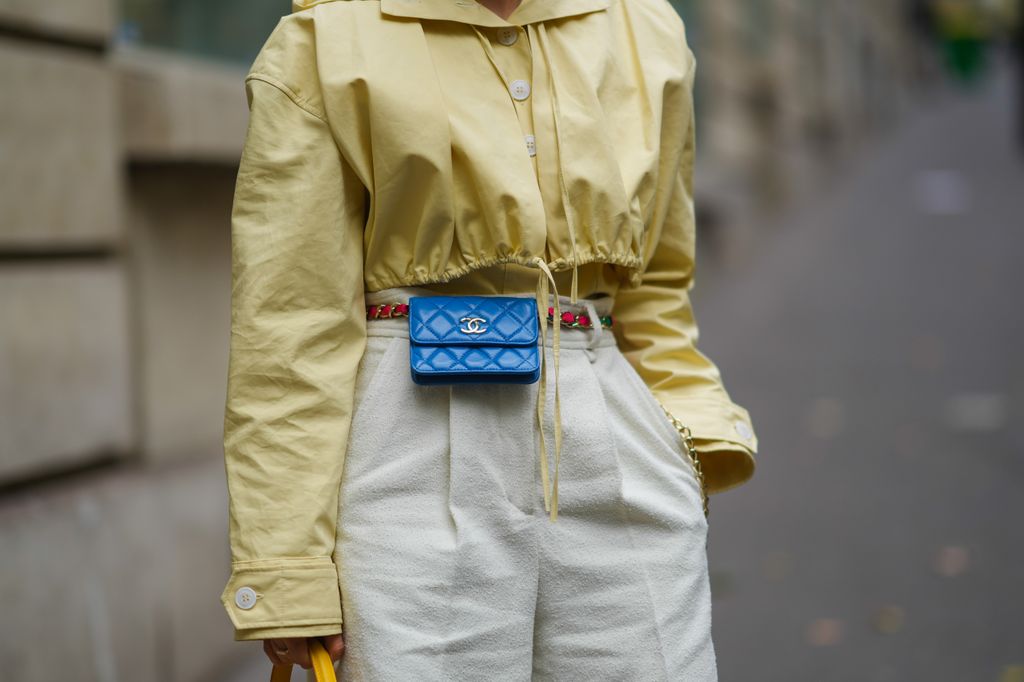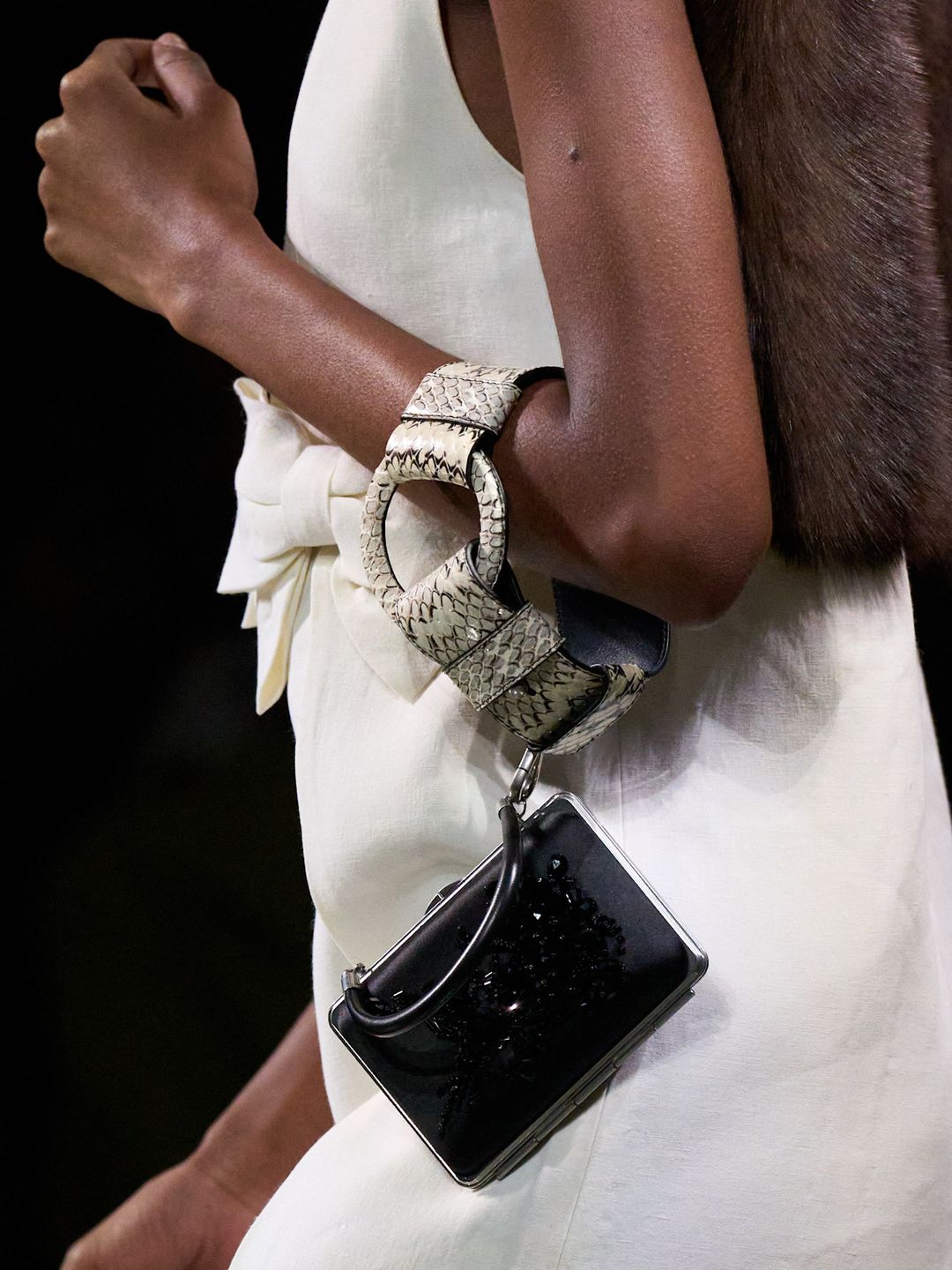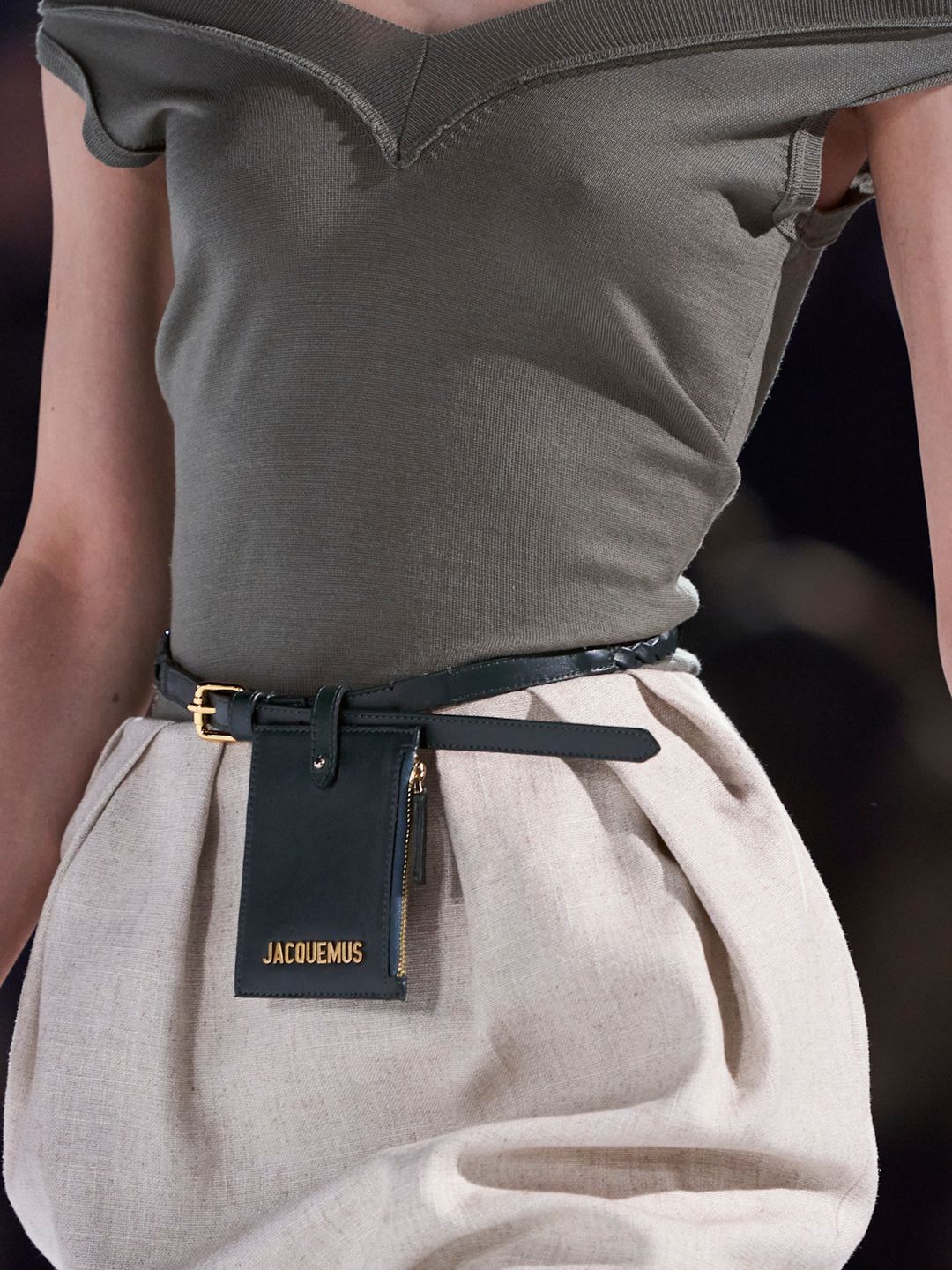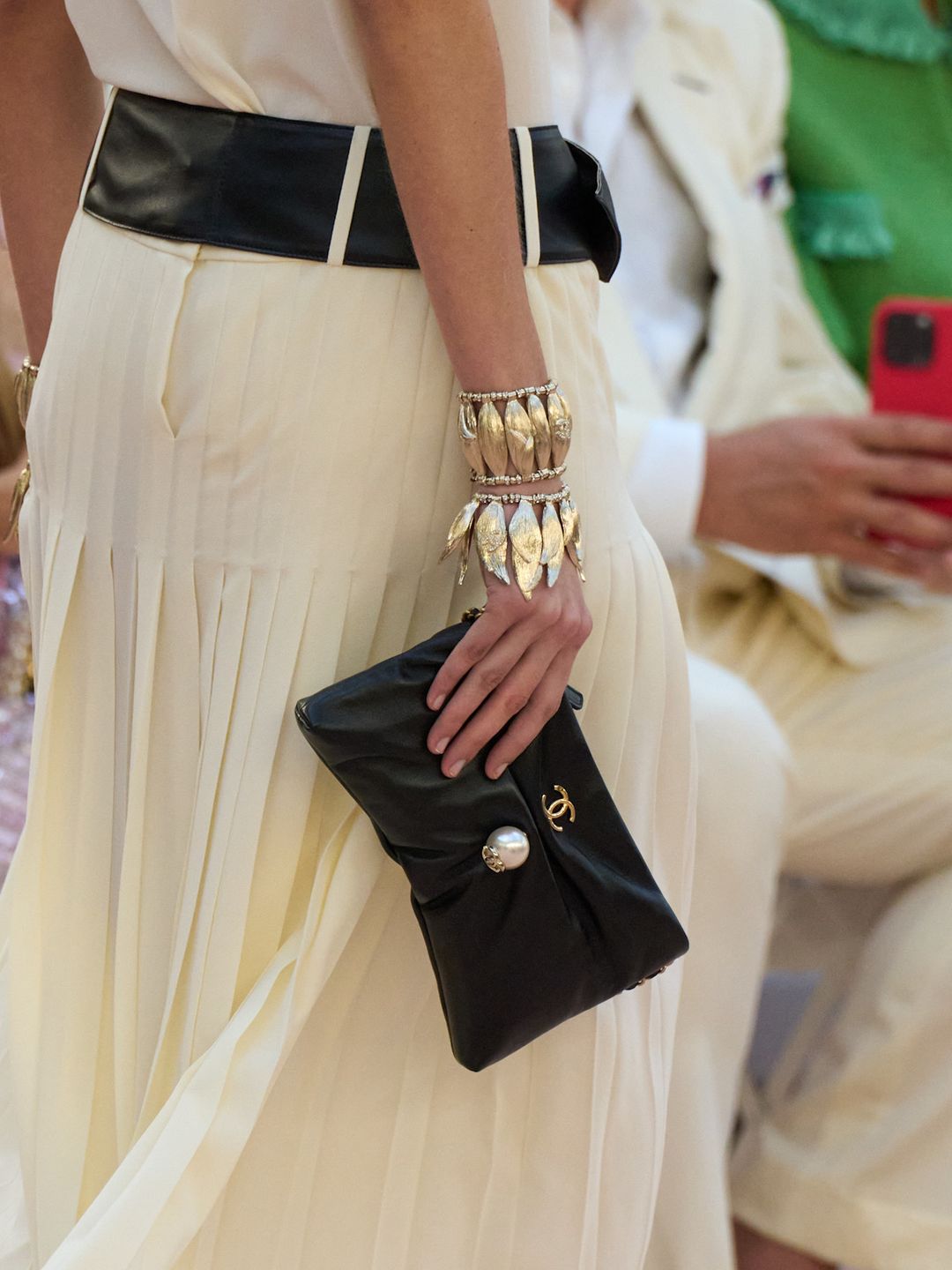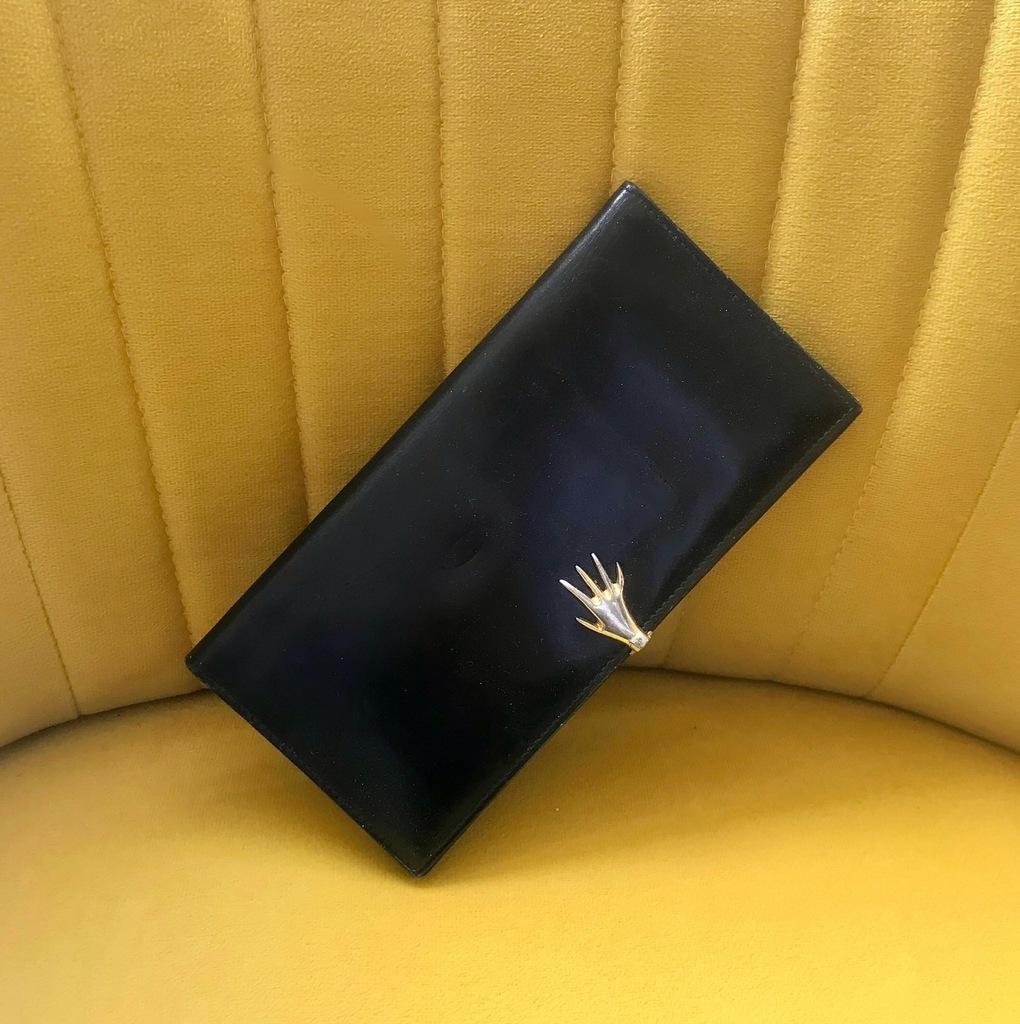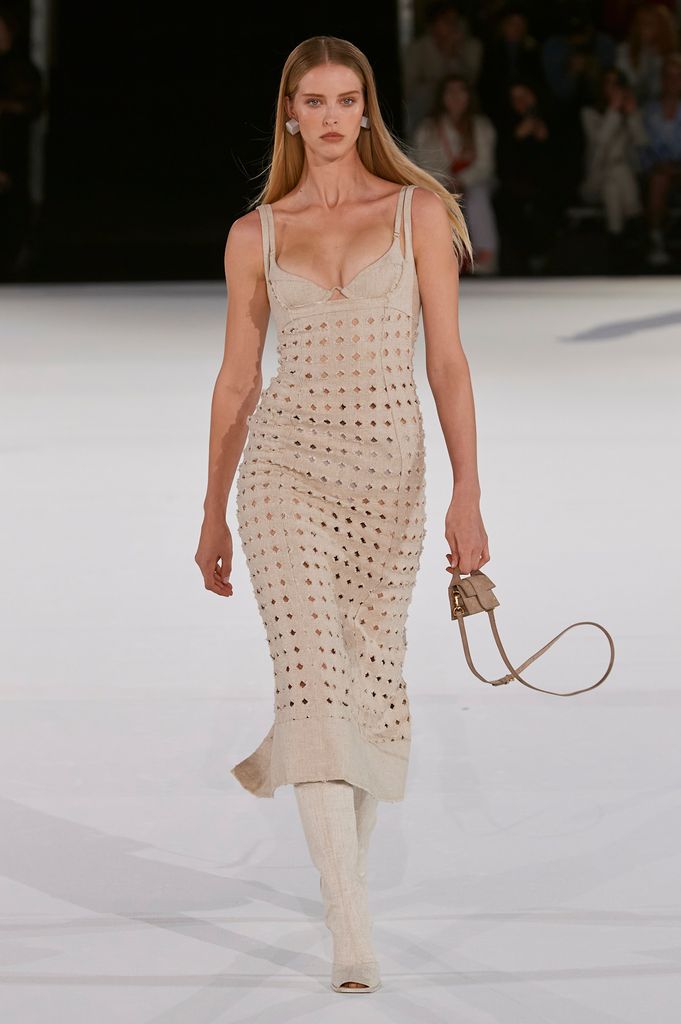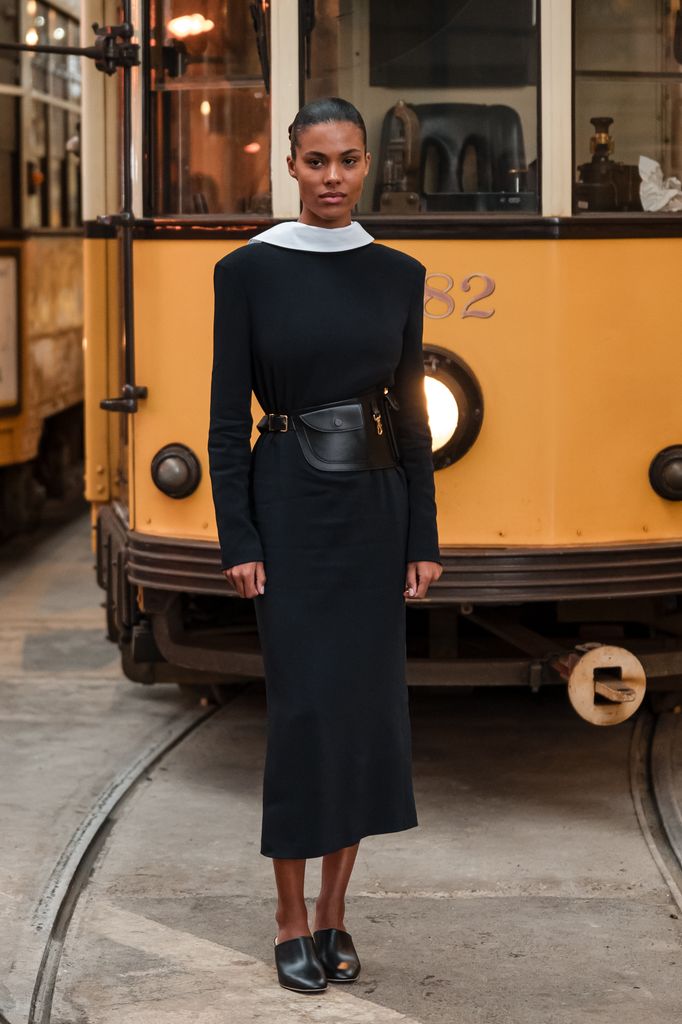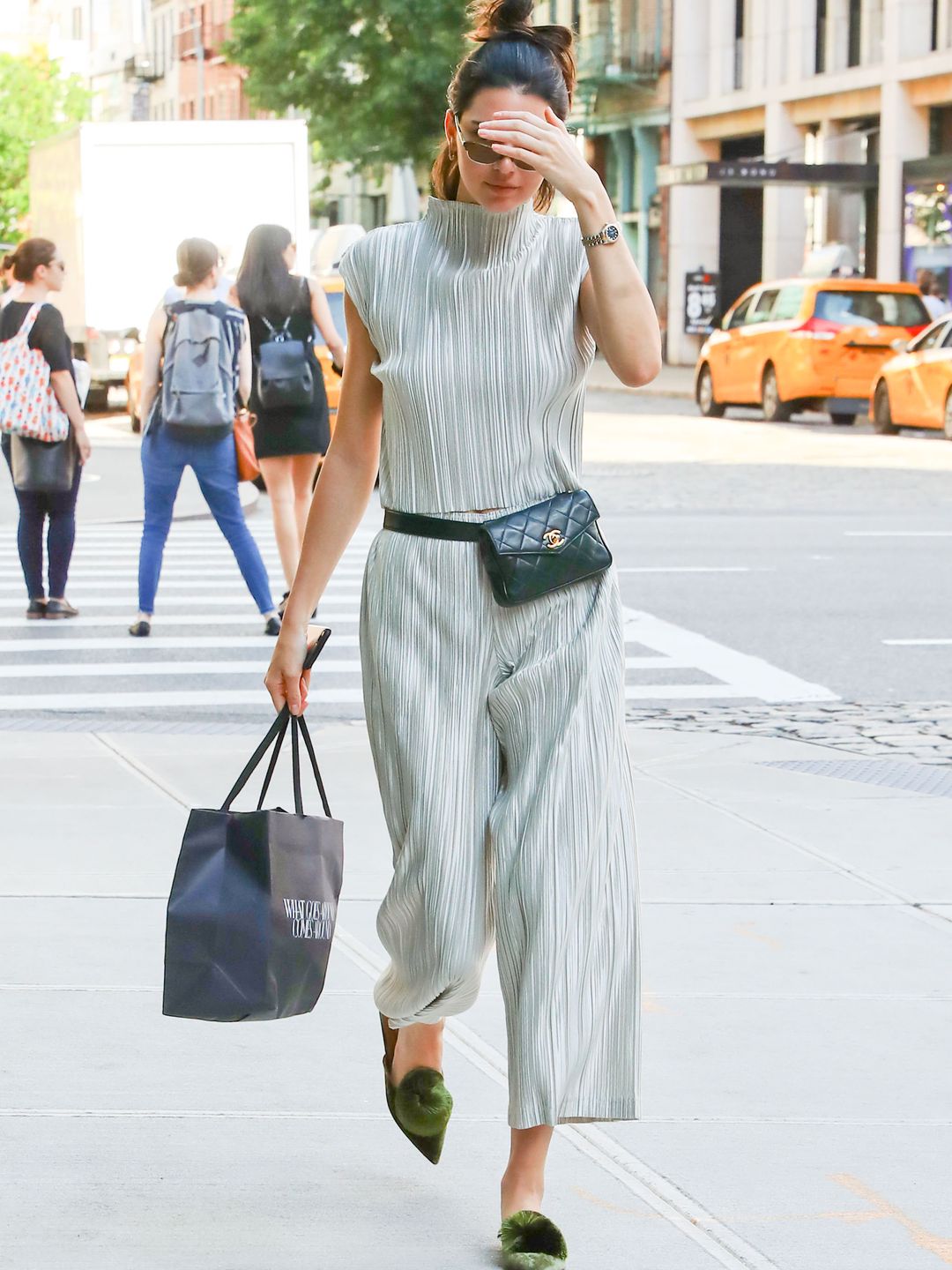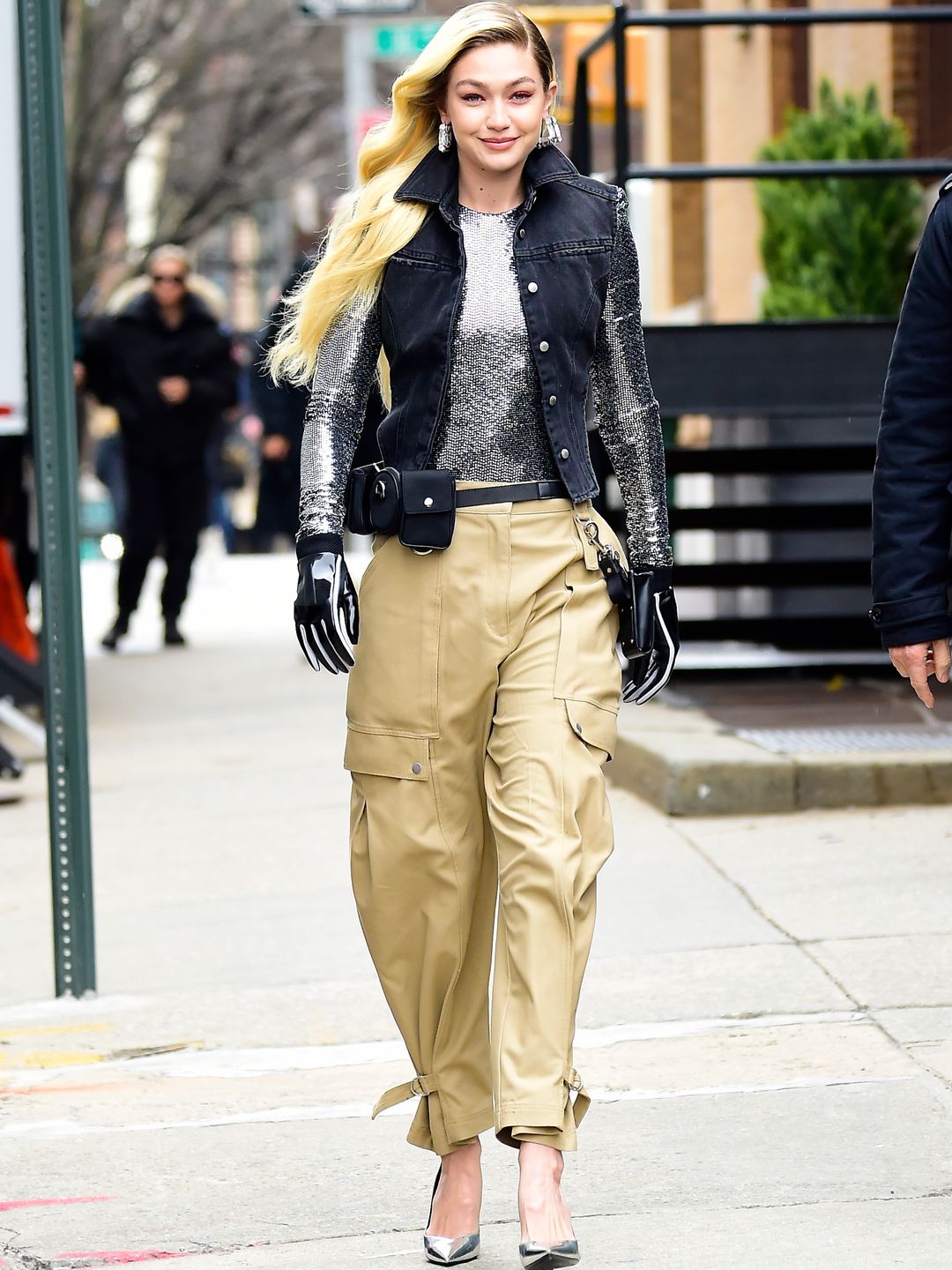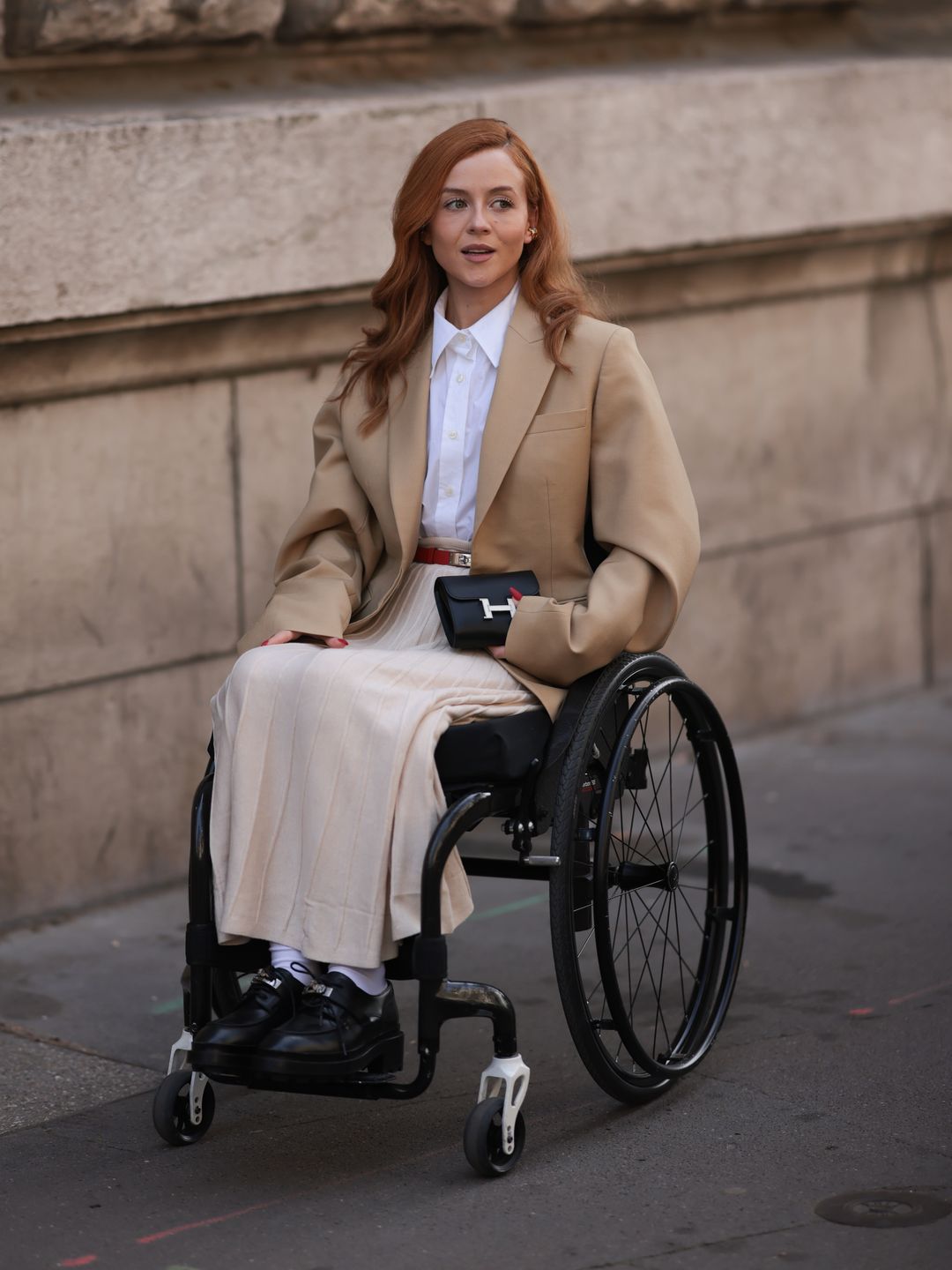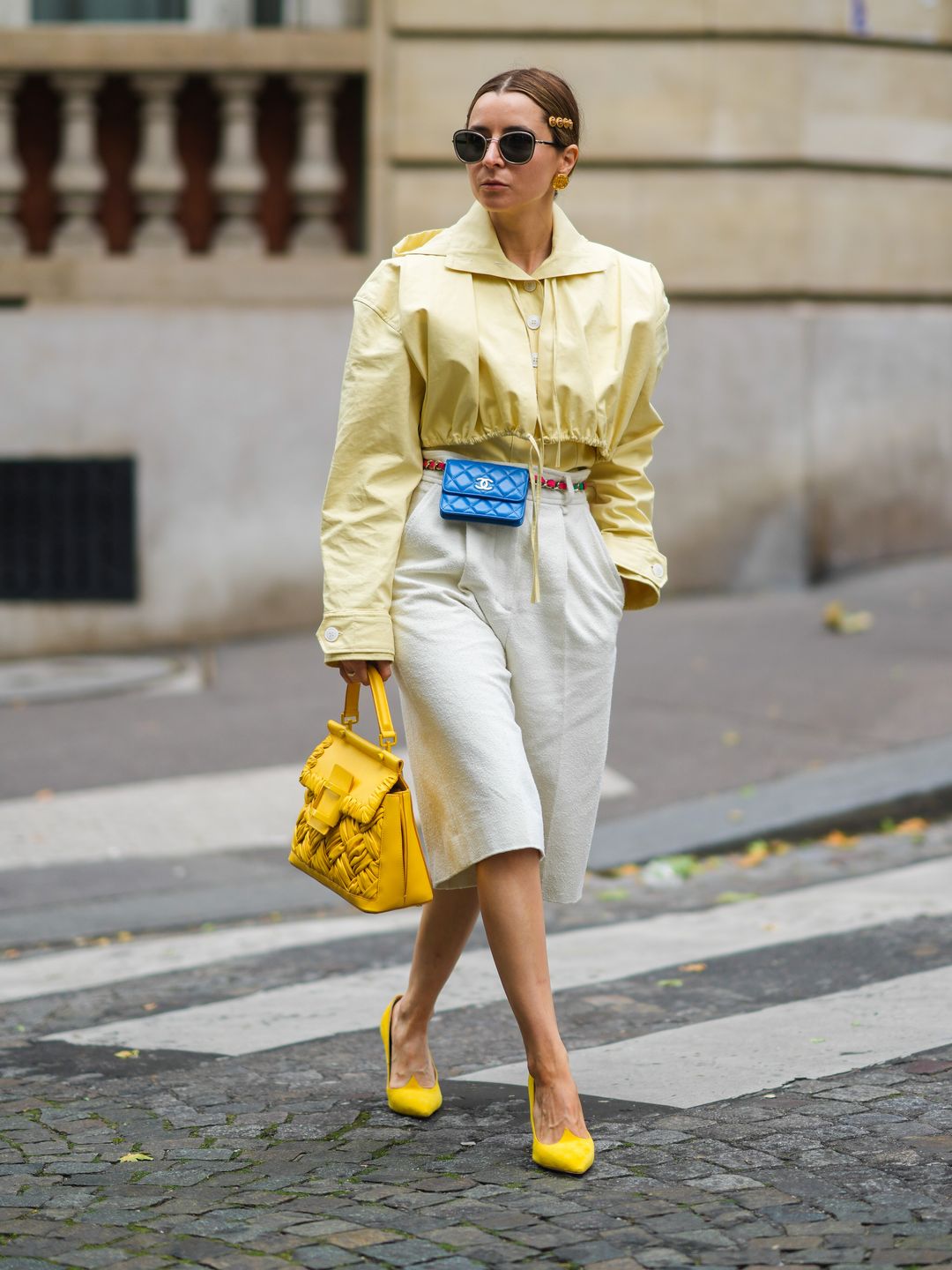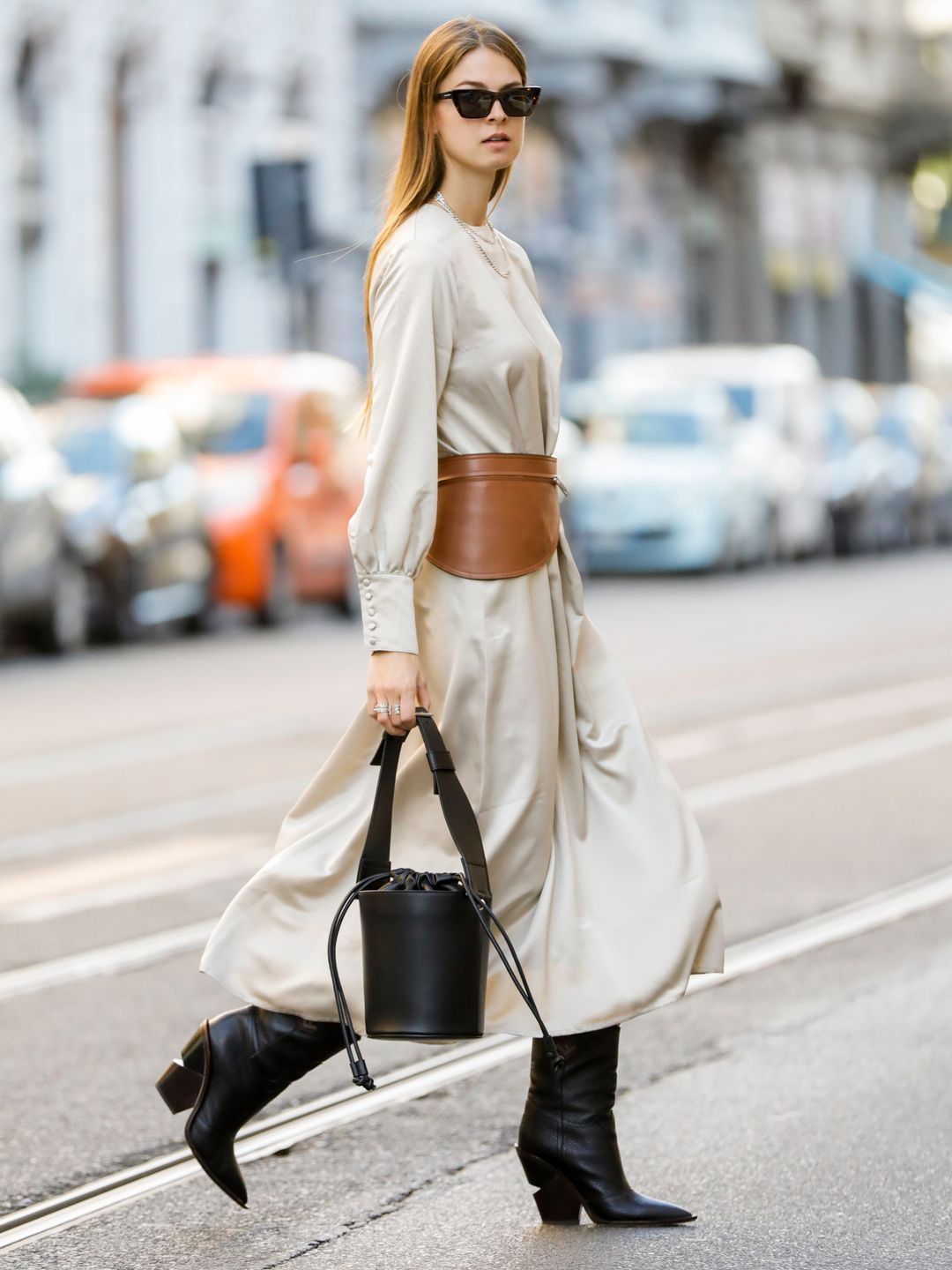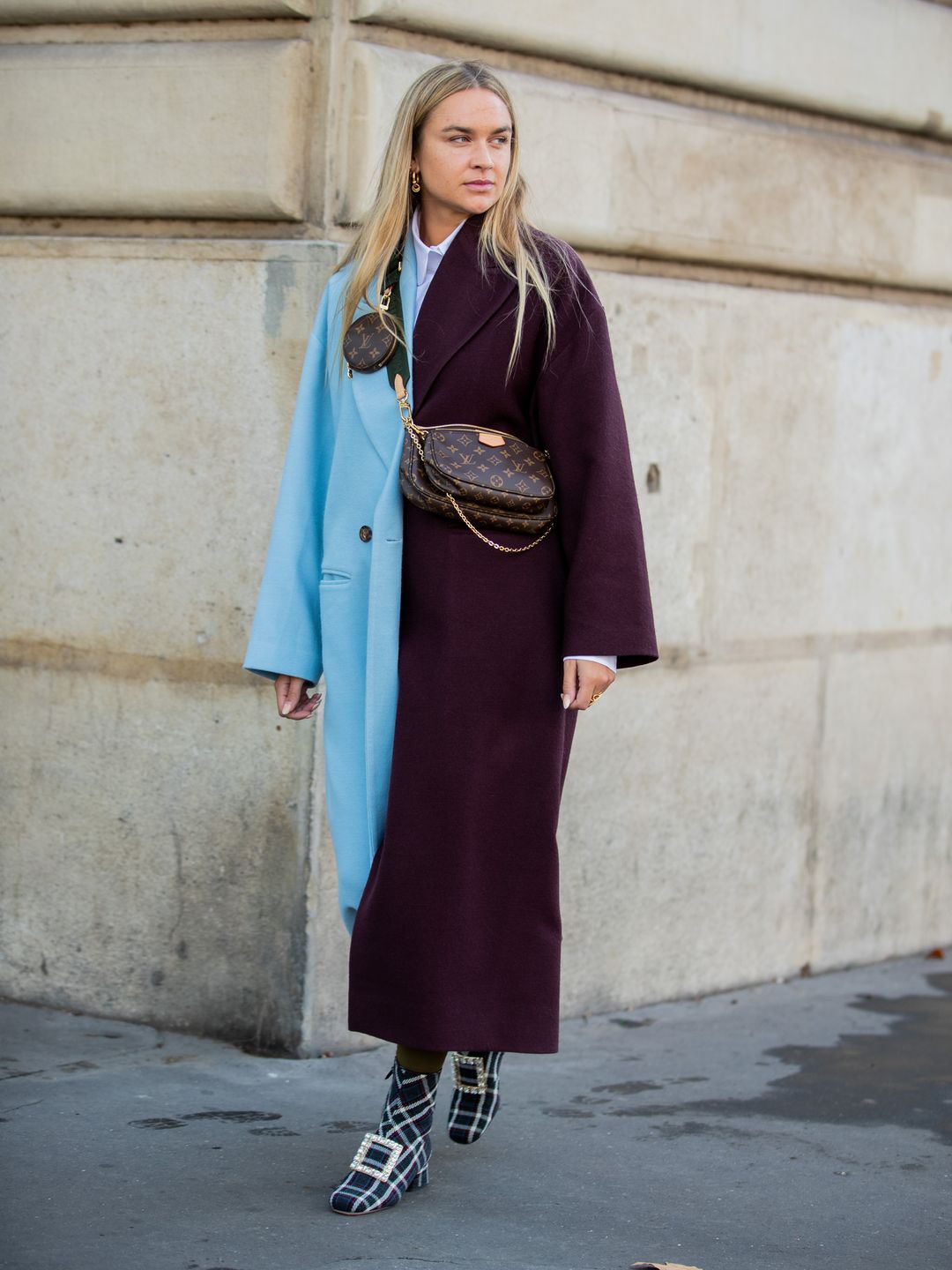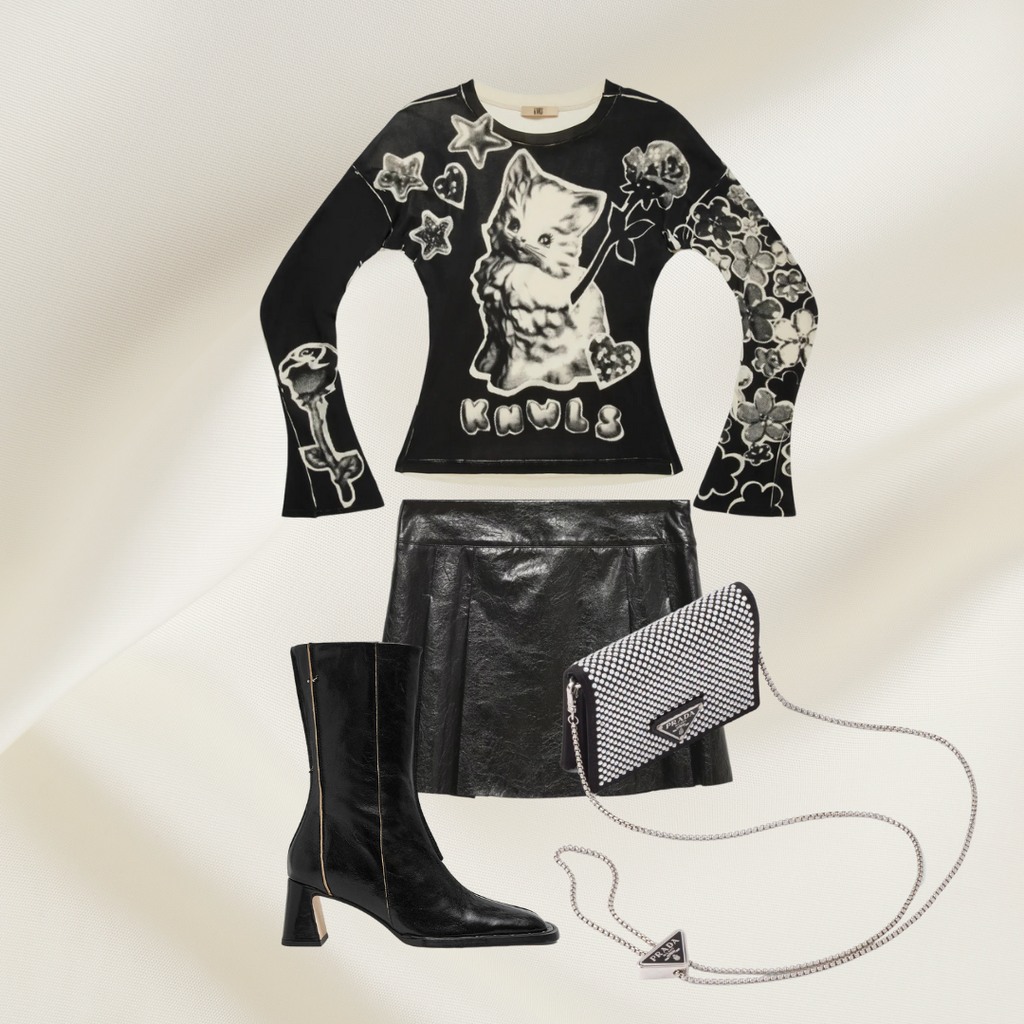I own three wallets. The first, an everyday Zadig & Voltaire number crafted from buttery black leather with the brand’s signature angel wing silver hardware. The second, my grandmother’s monogrammed Louis Vuitton, worn but ever-wonderful. The third is one of my most prized possessions. A 1960s Gucci gem complete with a golden hand clasp, an emerald interior and sleek black leather finish, plucked from the Frock Me! Vintage Fair in Chelsea. If the house was on fire, I’d grab the Gucci.
The frequency of their use? Almost never. It pains me to admit that my cherished accessories have become decorative pieces despite their functional design. Today, I mainly get by on Apple Pay, housing my cards and ID in a gold Maje cardholder I bought for £5 on Vinted in case my phone runs out of juice.
I wish I had the patience to rotate my wallets as often as I do my handbags. But most days are heavy enough, lugging laptops, makeup bags, water bottles and notebooks from home to office to after-work events. A chunky wallet is simply not necessary when all one needs is a swipe of their phone.
Does everyone feel this way? Clearly not. According to Statista, the revenue generated in the wallets market worldwide amounts to £19.37 billion 2024, wth the market expected to experience an annual growth rate of 4.56 per cent from 2024 to 2029.
Louis Vuitton, Chanel and Prada paved the way for the luxury sphere, proving to be the most popular brand picks for consumers wanting a designer piece.
It’s no secret that accessories significantly enhance a brand’s commercial value, be it high street or high end. The latter however, is often demystified via their accessories offerings. Precedence Research notes: “Purchasing luxury handbags frequently entails a tailored, high-touch experience exclusive to physical stores. Consumers like talking with informed salespeople, touching the bags, and getting a close-up look at the craftsmanship,” hence pieces such as wallets offer a snippet of exclusivity to those who can’t afford the whole sartorial sha-bang. Escapism wrapped up in a lashing of leather.
Wallets also appeal to all genders. Another report suggested that the leather wallet market is divided into two main types: male and female, with the male market focusing on wallets featuring minimalist designs, sturdy construction, and space for essentials like cash and cards, while the female market centred on style, versatility, and organisation.
Women’s wallets have undoubtedly undergone a greater evolution than men’s. Micro bags à la Jacquemus, Vivienne Westwood and Diesel, Prada’s ‘Re-Edition 2005 Re-Nylon’ bag with detachable pouch and Dior’s ‘Saddle Removable Pouch Belt,’ are all stellar examples of how the classic purse has morphed into something more trend-led and versatile.
I wanted to see if I was alone in rejecting my beloved purse collection. So, who better to ask about their personal usage of a wallet than the H! Fashion squad? “I haven’t used a wallet for as long as I can remember,” says Fashion and Lifestyle writer Lauren Ramsay. “Thanks to the rise in cashless payments plus the addition of zip pockets inside a handbag, I feel no reason to use one. I’d rather eschew a bulky purse and save space in my clutch for the essentials. Perfume, portable charger and lipgloss over a wallet.”
H! Fashion Editor Natalie Salmon feels the same way: “I personally, I do not use a wallet. I use Apple Pay for absolutely everything. I find that my wallet is sadly gathering dust and that’s because I change handbags a lot depending on what outfit I’m wearing so I always end up forgetting to move my wallet. Sometimes it’s too bulky for some handbags. So I do think the wallet has become slightly redundant. That being said, I’m not against the idea of a wallet. I just know that in reality, it does not travel with me and I wish that everything would just be accessible through my iPhone. My iPhone is my wallet.”
The real question remains, who is buying wallets today? Considering we live in a cost of living crisis where excess spending is widely unnecessary, you’d think wallets would be the first to go. Not to mention, we tend to only use one or two throughout our lives.
Grand View Research says Asia Pacific dominated the belts and wallets market with a share of 44.2 per cent in 2022, led by countries such as China and India. China has traditionally been the largest manufacturer of leather products worldwide, with one figure stating that the country is responsible for nearly 35 per cent of global luxury goods consumption. Coupled with the rise of influencers and personalised marketing campaigns that resonate with younger, sustainably-concerned wealthy consumers, wallets still hold a shelf in the style sphere.
Whether you deem them a relic or requisite, wallets possess a conventionality that is often lost in the frenzy of contemporary fashion. Perhaps this is where their enduring charm lies, resonating with shoppers seeking a touch of timeless sophistication amidst ever-changing trends.
How to wear a wallet:
How I would style a wallet:
- TOP: Kitty Longsleeve, £270, KNWLS
- SKIRT: Leather-Effect Pleated Mini-Skirt, £35.99, MANGO
- BAG: Cardholder with Shoulder Strap and Crystals, £1,150, PRADA
- SHOES: Greer Black Ankle Boots, £460, MIISTA
HELLO!’s selection is editorial and independently chosen – we only feature items our editors love and approve of. HELLO! may collect a share of sales or other compensation from the links on this page. To find out more visit our FAQ page.



